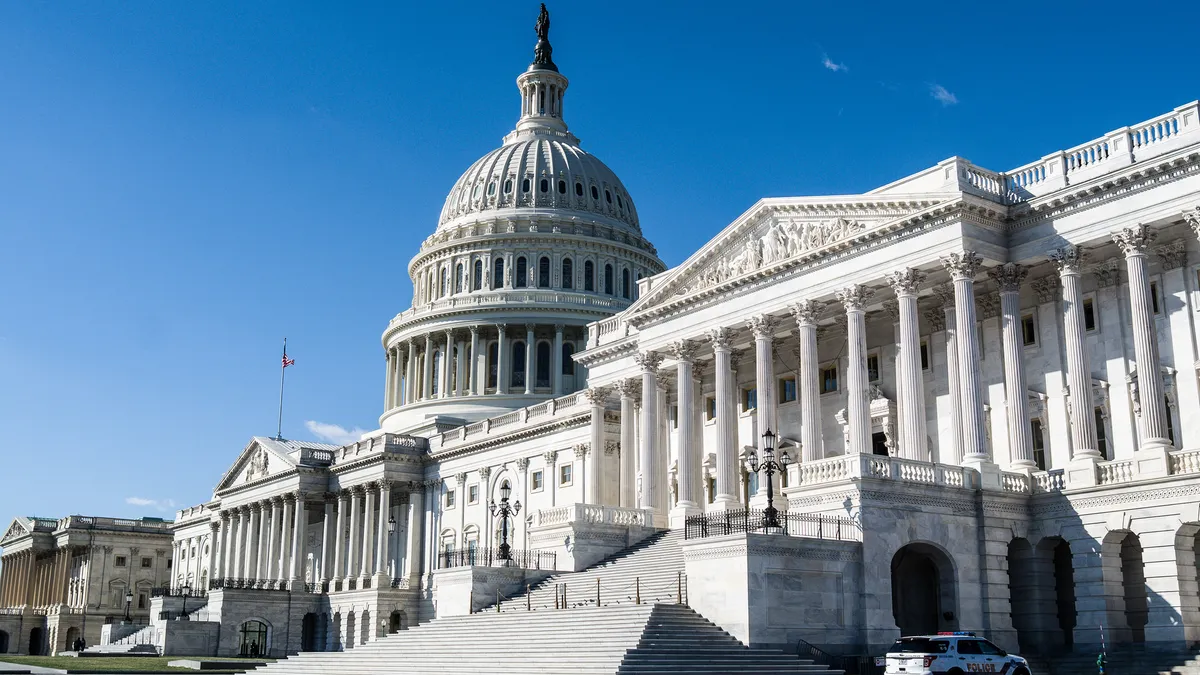Dive Brief:
- Congressional negotiators have agreed to an end-of-year bipartisan bicameral package to fund the government that would permanently repeal three Affordable Care Act taxes on medical device manufacturers, high-cost health insurance plans and the health insurance industry.
- Funding for the package comes from the CREATES Act, which aims to enable generic drug makers to more easily procure samples of branded drugs to develop a generic copy. The bill also grants Medicaid funding for Puerto Rico and other United States territories.
- It also contains language to bolster the ACA, prohibiting HHS from ceasing exchange auto-enrollment and preventing the government from stopping insurers that load cost-sharing reduction payments onto silver plans to raise federal premium tax credit amounts.
Dive Insight:
If enacted into the law, the measure culminates a years-long battle by medical device companies to scrap the levy. AdvaMed lauded the deal, calling it a win for patients and medical innovation.
The year-end package, often deemed a "Christmas tree" due to a diverse set of policy riders attached to it, appears to have bipartisan support.
The bill provides $41.7 billion for the National Institutes of Health, $3.16 billion in discretionary funding for FDA, and $4 billion for CMS administrative expenses. FDA's Center for Devices and Radiological Health and associated activities in the Office of Regulatory Affairs are set to receive nearly $582 million in funding.
"I'm pleased that we have reached a bipartisan agreement that will keep government open, provide the certainty of full-year funding, and make strong investments in key priorities for American communities," House Appropriations Committee Chair Nita Lowey, D-N.Y., said in a statement.
One major bipartisan priority, surprise billing legislation, was left out by lawmakers after a lengthy lobbying blitz by industry and private equity investors. However, the issue may still have a vehicle next year with certain health program extenders only set to last until May 2020, according to Cowen's Rick Weissenstein and Eric Assaraf.
"A hodgepodge of Medicare and Medicaid extenders in the year-end spending package are only expected to last until May of 2020, giving surprise billing legislation a potential pathway in 2020," they wrote in a policy note.
It also contains the Laboratory Access for Beneficiaries Act, which the American Clinical Laboratory Association and AdvaMedDx lobbied for. The legislation delays data reporting used to establish the Medicare clinical lab fee schedule by a year.
Durable medical equipment makers came away with a small win, garnering an exclusion of complex rehabilitative manual wheelchairs from CMS' competitive bidding program. But the industry's top priority, an exclusion for non-invasive ventilators from the Medicare competitive bidding program, was not included in the package.
The repeal of the major ACA taxes removes a funding stream originally intended to help offset the law's costs.
The Congressional Budget Office and the Joint Committee on Taxation estimated in December 2018 eliminating the medical device tax would cost $1.6 billion in 2020 and $2.2 billion in 2021.
The groups said extending the suspension of the health insurance tax would cost nearly $13 billion in 2020 and $13.7 billion in 2021. Meanwhile, delaying implementation of the Cadillac Tax would cost $7.8 billion in 2022 and $5.7 billion in 2023.












